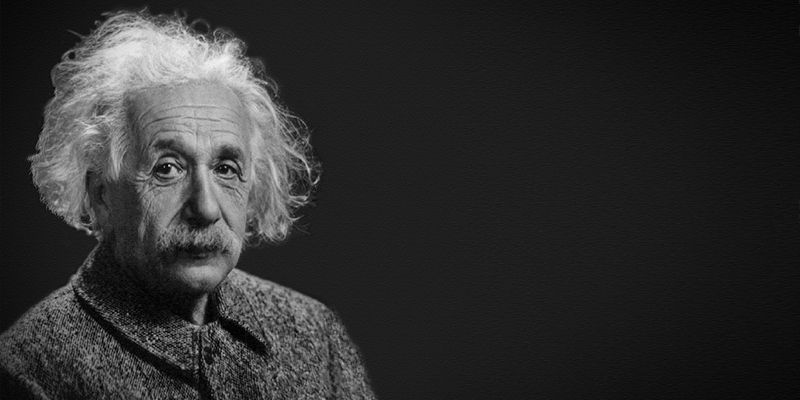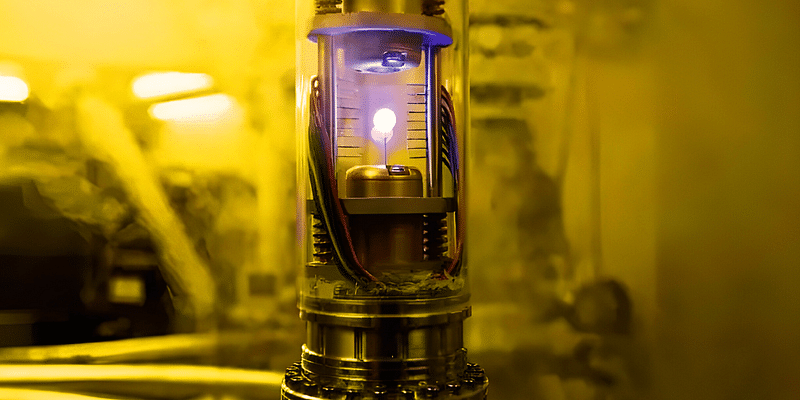Albert Einstein: the great scientist who was a flawed human being
E = mc2. There are few people who wouldn't instantly recognise this equation and the genius who conceived it — Albert Einstein. Einstein is one of the greatest scientists in mankind's history and is certainly recognised as such. His work in theoretical physics, from developing the theory of general relativity to advancing the law of photoelectric effect, not only earned him a Nobel Prize in 1921 but also earned him the title of the most prominent physicist of the twentieth century and Time magazine's ‘person of the century’. His contributions to the philosophy of science and his rationalisations on morality and ethics devoid of religious influence, though not as well-known as his scientific work, are still regarded as extremely important. He was also an ardent proponent of civil rights — fighting against racism in the US, and furthering the Zionist cause in Israel.

But the man, the mortal human being behind the veneer of scientific legend, still remains unknown to many. By placing Einstein on an insurmountable pedestal, we often fail to realise that he was ultimately human – an incredibly smart one, but a human nonetheless. His steadfast dedication to work and frequent submissions to illicit temptations led to the suffering and anguish of countless people, and his family most of all. To understand that being a genius doesn't make a person worthy of proverbial worship, here's an iconoclastic observation of the man known as Albert Einstein.
Einstein: a philanderer and an absent father
Albert Einstein met his first love, Marie Winteler, at the age of 16 while studying in Aaru, Switzerland. They split up a year later, when he enrolled at the Zurich Polytechnic (university) and she moved to Olsberg, Switzerland, for a teaching role. Despite their short affair, Einstein retained strong feelings for Marie in the decades to come, and he professed them in numerous letters to her while still married to his first wife.
It was during his time at Zurich Polytechnic when he met Mileva Marić, who was to become his future wife. But the road to matrimony and beyond was not devoid of aberrations. A year before their marriage, Mileva gave birth to Einstein's daughter, Lieserl, while he was away searching for a job. The child's fate is contested — some believe that she was given up for adoption while others believe she died in her infancy due to scarlet fever — but one thing is sure: Einstein never saw her.
A year later, in 1903, Einstein found work as a clerk in a patent office and married Mileva. She would eventually bear him two sons — Hans Albert Einstein and Eduardo Einstein. The elder of the two, Hans, later recounted how Einstein was anything but a good father, stating that “probably the only project he ever gave up on was me.” Einstein also neglected his second son, Eduardo, who was diagnosed as a schizophrenic and later died in an asylum.
Not much can be said about Einstein's role as a husband either. In 1910, he wrote comprehensive letters to his first love, Marie Winteler, professing his love for her. An excerpt from the letters, which were made public in 2015, read “I think of you at every free moment, and I am as unhappy as a man can be.” In 1912, while still married to Mileva and a year after he proposed the theory of general relativity, he began an affair with his cousin, Elsa Lowenthal. Two years later, Einstein left his wife and two sons to live with Elsa
He divorced Mileva in 1917, but not before presenting her with a list of authoritarian conditions under which he would agree to remain married. Despite his infidelity, it was Einstein who demanded from his wife that she should not “expect intimacy”, or “reproach him in any way”. Mileva inexorably denied compliance, and the pair divorced in 1919. He married Elsa Lowenthal a few months later.
If Einstein was expected to mend his ways after a failed first marriage, that was not to be. A few years after marrying Elsa, he began an affair with his secretary Betty Neumann, who was also the niece of a friend. Accounts suggest that Elsa knew about it and allowed it to happen, and that Einstein continued to have other illicit liaisons during his marriage. He continued his philandering ways well after Elsa's death in 1936, but he never remarried.
So, what should we make of him?
Insinuations have also been made that Einstein was a fraud who stole much of his work from other scientists. These accusations were first levied against him by pro-Nazi Germans who disliked the idea of a liberal Jewish scientist usurping them. And despite modern critics continuing the attack on Einstein's scientific prowess, they, just like their predecessors decades ago, have never found any concrete evidence to support their defamatory claims. The question of Einstein's scientific brilliance, then, is beyond reproach.
As for his social shortcomings, they can, to a certain extent, be attributed to the stereotypical portrait of persons with exceptional intelligence. In this way, Einstein is not alone in regards of being a terrible husband, father, or a person in general. Mozart, Beethoven, and even Aristotle are among some of history’s most revered personalities who were despised by those who knew them; and even then, there are always exceptions.
J Robert Oppenheimer, inventor of the atom bomb, said of Einstein that he was one of the “friendliest men” he had known but was “also, in an important sense, alone”. If historical accounts have taught us anything, it's that geniuses are never good at dealing with other people, and Einstein certainly was a genius. But the achievements of Einstein the physicist cannot overshadow the shortcomings of Einstein the father or the husband, and neither can his personal antics belittle his scientific feats. As eminent Einstein scholar John Stachel said, “Too much of an idol was made of Einstein. He's not an idol – he's a human, and that's much more interesting.”











